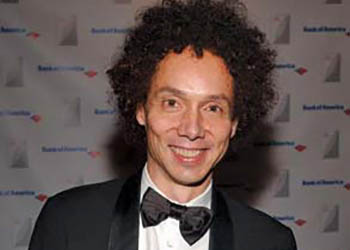Malcolm Gladwell’s Podcast Puts Things in Perspective

I’ve discovered Malcolm Gladwell’s fine new podcast, called Revisionist History, and have been enjoying his prescient observations and occasional outrage. The first episode I listened to was about a radical approach to shooting foul shots in basketball that actually increased the percentage of successful baskets, but that most players shunned.
The only player who stuck with the technique, shooting underhand from between your legs, was Rick Barry, who wasn’t embarrassed by the silly-looking shot. Barry was also one of the most hated players to ever grace an NBA court. But despite the fact that more shots would go in like this, it never took off.
Today’s episode, called, “My Little Hundred Million,” was about Hank Rowan, the billionaire industrialist who gave $100 million to Glassboro State College in 1992. Gladwell argues that this kind of gift, to a small school with a very low endowment and that never makes headlines, is an anomaly.
That’s because billionaires and millionaires much prefer to give large gifts like this to universities that are don’t really need the money….Harvard, for example.
With an endowment of $36 billion and growing, they hardly need another $400 million, but that’s exactly what John Kluge gave them in 2015. Princeton, with $22B endowment, earns about $2.4 B every year—tax free! And they’ve received donations of $400 million too!
Gladwell interviews the president of Stanford, John Hennessy, another school with an enormous endowment, now at $22 billion, and questioned him about why they deserve such largesse, and what he would do with a hypothetical $10 billion gift. This would throw off about $800 million a year, and what the Stanford president suggests is that they create a graduate student program so that about 100 students, the best of the best, can go great things.
What a contrast to Hank Rowan, who funded Glassboro’s School of Engineering that allows local kids from New Jersey and Pennsylvania to go to college for about $9000 a year.
Gladwell compares gifts to ultra rich universities with the way European soccer team owners lavish rewards on the top players instead of trying to shore up their team by making the least talented players better.
Star power, glamorous parties with famous players and pretty admirers seem to trump common sense. Because the weakest link, Gladwell points out, the place where you can really make a difference to win soccer games is by improving the least talented members of the team, not the top players.
